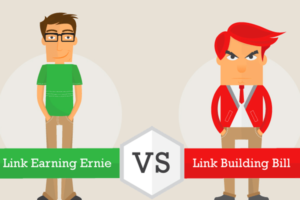Content Attributes
Shopify SEO Guide to Rank #1
Improving Shopify SEO can help you attract visitors and generate more sales. Without this, your store will not gain much traction. That means no sales and no revenues to keep your business going.
If you don’t want to suffer from this awful fate, then make sure to follow these steps on how to boost your shop’s ranking:
Improve your Site Structure
Organizing your store structure is vital if you want to improve your Shopify SEO rank. You’d like it to be as simple as possible, as this will help ease your visitor’s navigation experience. It will also make your website easily indexable by search engine crawlers.
When structuring your site, it’s best to go with Homepage > Category Page > Product Page or Homepage > Category Page > Sub-Category Page > Product Page.
While this makes browsing more manageable, don’t forget to add a search box. This makes the shopping experience better – something that all buyers love.
It’s also recommended to add an ‘About Us’ or ‘Contact Us’ page in your store. This will help make your page more credible to buyers.
Enhance the Overall User Experience
After doing a Shopify SEO audit, improving the following metrics will surely help your Shopify SEO rankings:
Site Design
You’d want your store to have a responsive design. It’s easy to pick the most visually appealing theme, but it’s not always suitable for your website.
It’s essential to choose a mobile-friendly design. At the same time, this layout should appear well on both desktop and tablet browsers.
Site Speed
Clients like effortless buying. They don’t have the patience to wait for a slow-loading website. Even if you have lower prices, your turtle-paced website may force them to switch to another brand.
You can prevent this nightmare by avoiding sliders and any other apps that can bog down website performance.
In terms of images, use small yet optimized ones as they load faster.
Do Keyword Research
As with other websites, your store’s success will rely on the use of the right keywords. While it’s good to use a keyword research tool such as SEMRush or Ahrefs, don’t forget to start small!
For one, you could start listing five topics that are related to your products. You can also draw inspiration from social media hashtags and user forums.
It’s also important to look at your competitors’ websites as this will help you see why they rank better than you at the moment.
…and Make Use of These Keywords
To ensure good Shopify SEO rankings, you need to make use of your keywords correctly.
You should start by optimizing your top-ranking pages first. These include your home page, category pages, and bestselling product pages.
It would be best if you also worked on the items that generate a lot of buzz, or those with more than 10,000 searches a month.
Remember, it’s important to use your keywords consistently, especially when making title tags. Make sure to use this format throughout the entire store.
As for product titles and meta-descriptions, it’s vital to craft original content. Make sure to incorporate your keywords, but they should integrate with the piece seamlessly. You don’t want them to appear forced as search engine crawlers take notice of this.
Establish Backlinks
Backlinks reflect the value of your website. This off-page technique helps cement the trustworthiness and credibility of your Shopify store.
There are many ways for you to earn backlinks. For one, you can ask suppliers and manufacturers to link back to your store. You can also scour the web for mentions, for which you could ask a link back to your page. If you have the money, you can ask influencers to provide links and content for your Shopify store.
Market Your Content
Content marketing is all about producing blog posts, articles, videos, podcasts, and other informative and promotional materials. While you may deem it tiresome, doing so is a great driver of organic traffic.
So why is it important to market your content? For one, it helps engage and educate your clients. Add to that, it can help you attract your target audience, which you can quickly turn into customers or brand advocates.
With content marketing, you can build a better client base.
Use Tools That Improve Shopify SEO
While Shopify has built-in SEO features, it comes with add-on apps that could further boost optimization.
One such program to try is Plugin SEO, which sends alerts after it finds problems within your website. It can save you a great deal of time because it checks page titles, descriptions, content structure, and site speed automatically.
Another one to try is Smart SEO, which generates meta-tags for your products. Again, this can cut on the painstaking act of doing so manually.
If you want to boost your sales, then you need to follow these tips on improving Shopify SEO. While they require a lot of effort, they can lead to positive results almost instantly.



